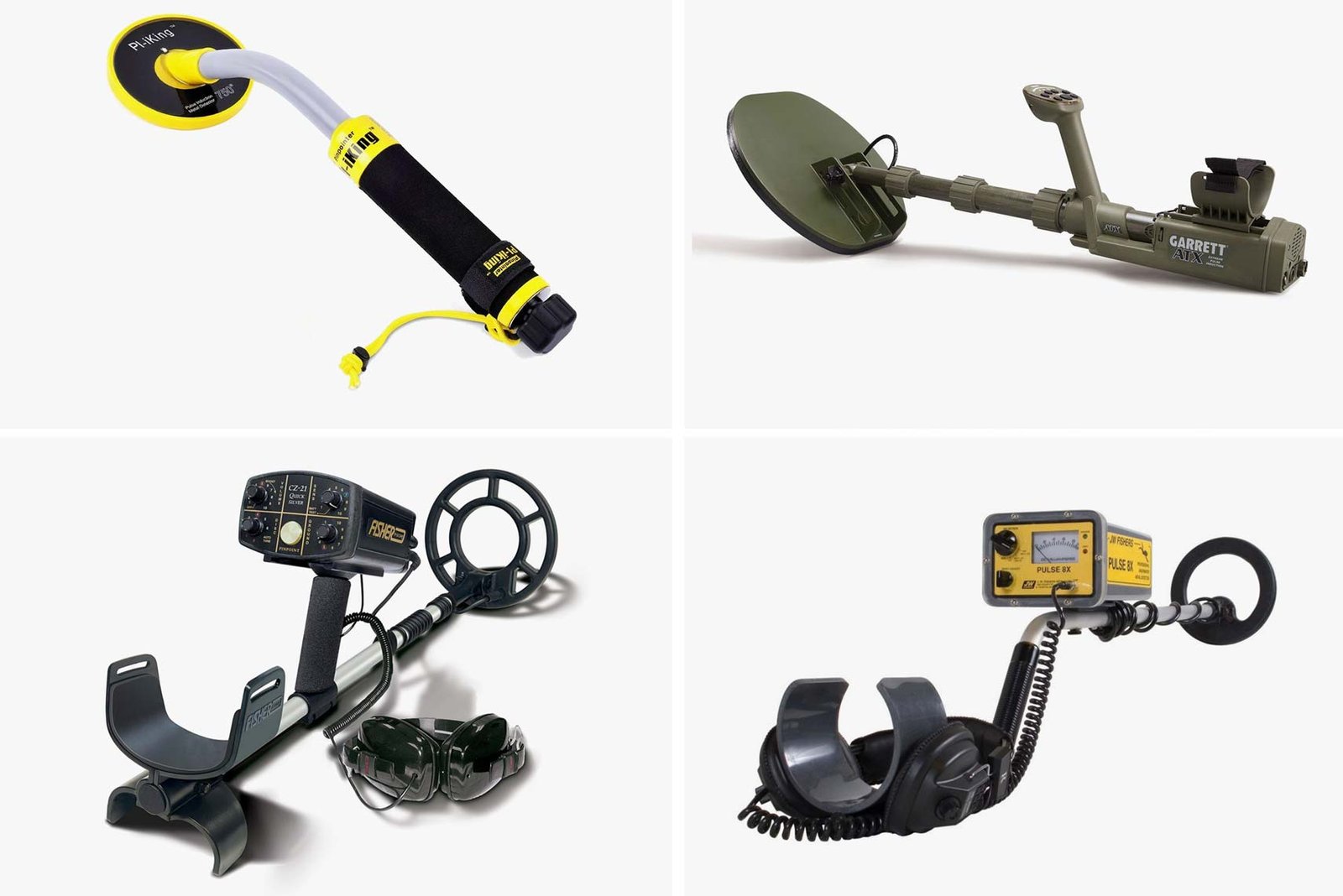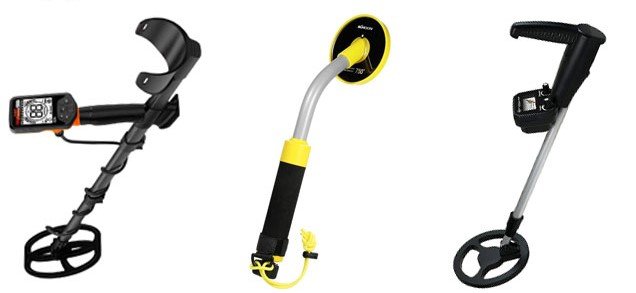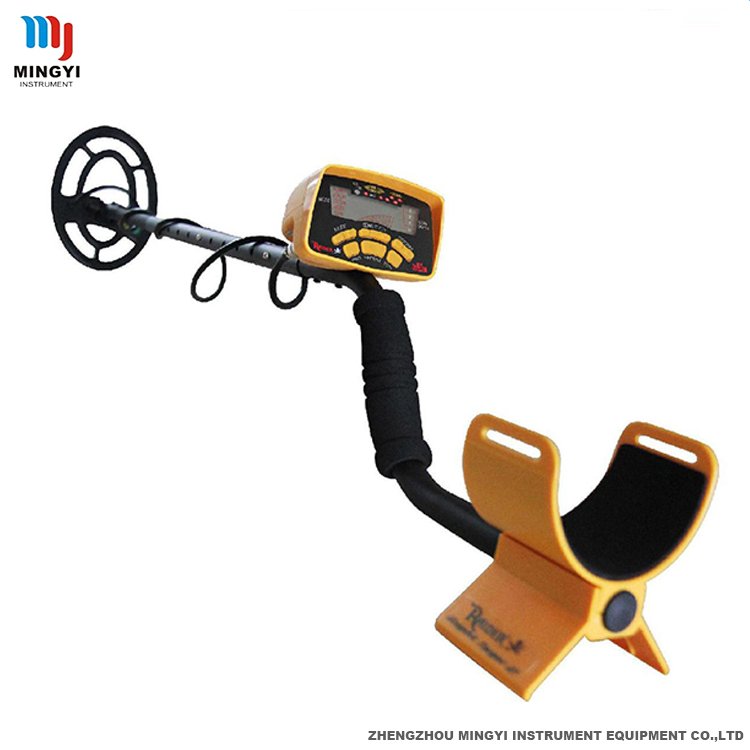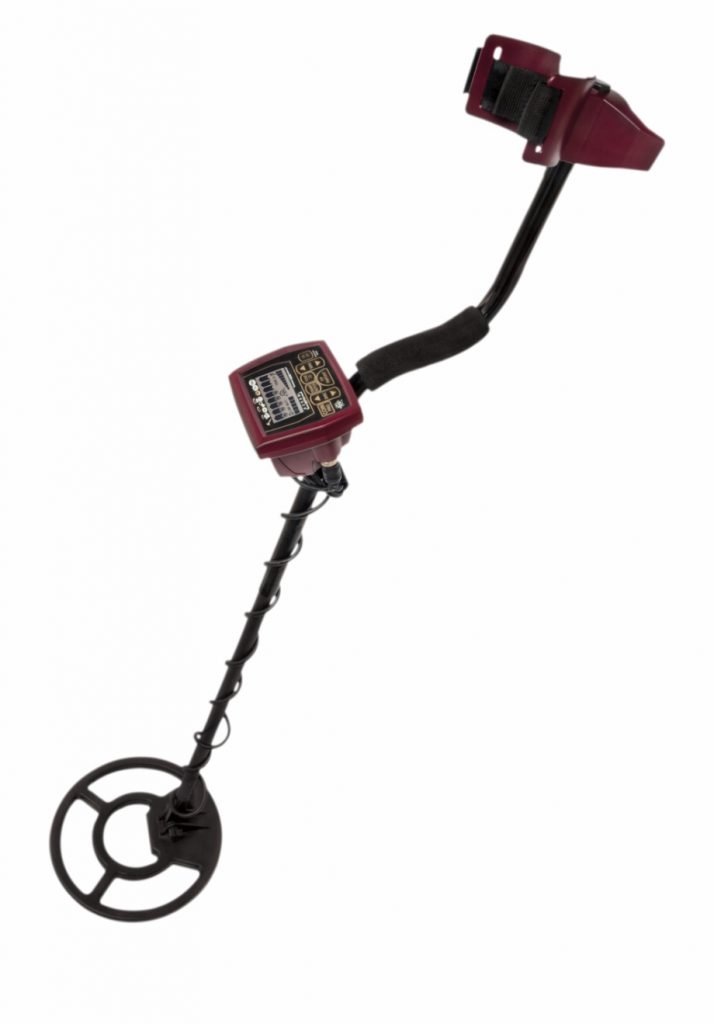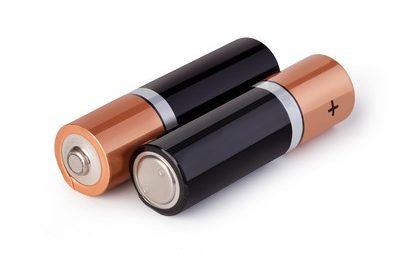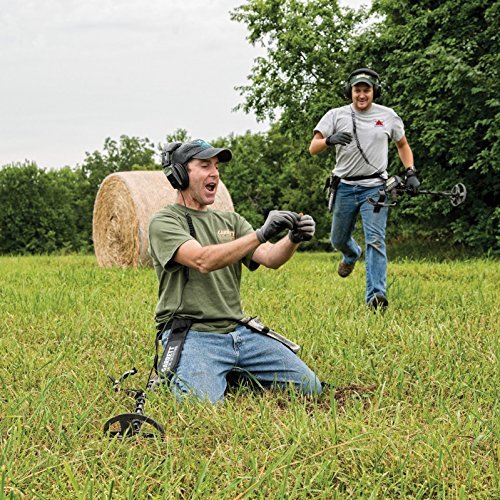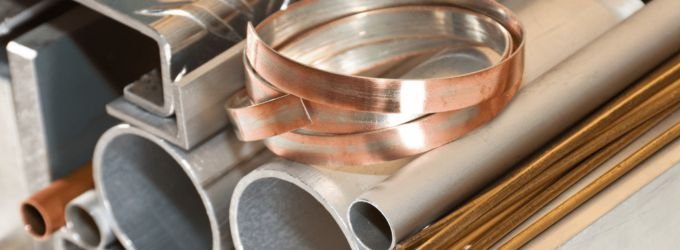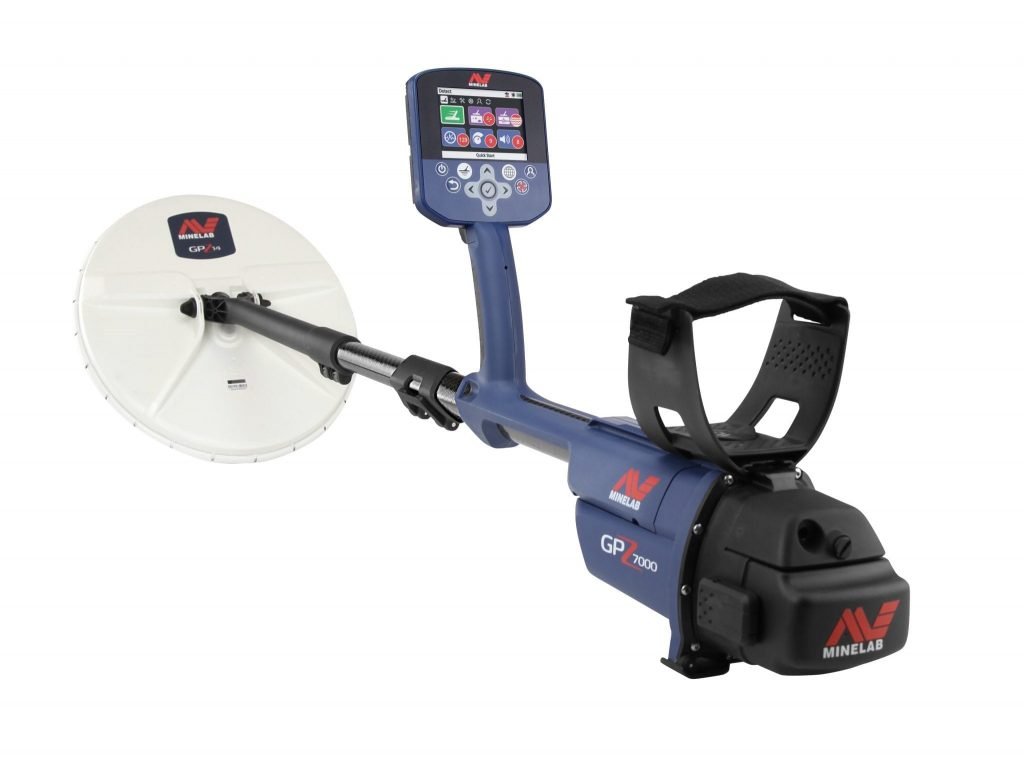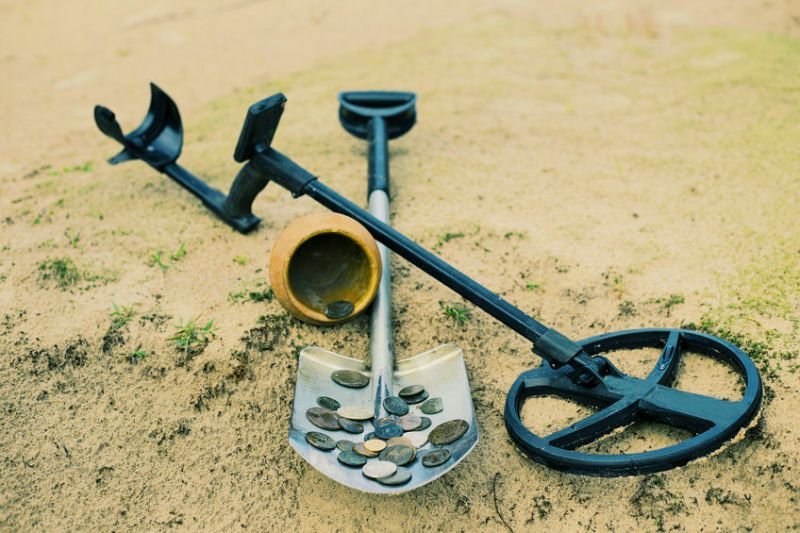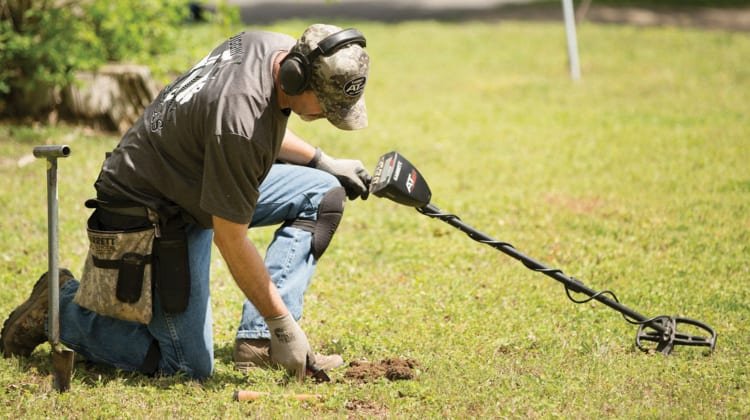Are There Different Metal Detectors? – Our Guide To Finding You The Best Metal Detector
If you are a beginner at metal detecting and you are on a hunt to find some treasures, you might be surprised to know that there is more than one type of metal detector on the market for treasure hunting.
There are three main types of metal detectors on the market; PI, VLF and BFO, all have their differences to consider if your a beginner metal detector and come with advantages and disadvantages depending on the types of targets you are using them for.
So as we can explore more of the differences between metal detectors, including what to look for in the best model, tips for metal detecting and the types of treasures you can find, we have put together our best guide below to help you choose which type of metal detector is right for you.
Let’s get hunting those treasures!
Different Types Of Metal Detector
As we touched on above, there are three different types of metal detector to choose from on the market, each is suited to different types of search targets and grounds according to their settings, we will discuss and compare each metal detector below.
Very Low Frequency (VLF)
VLF metal detector models are great for detecting a variety of targets and aren’t limited to certain metal types.
This detector type works by using a transmitter coil and a receiver coil to alert you if they find treasures, they also tend to be very accurate, even at extreme depth.
VLF detector type models have popularity among treasure hunters because of this high accuracy, and also because they can tell you the definition of the treasure before you even have to dig it up, allowing you to only spend time digging valuable targets rather than trash targets.
Drawbacks of this VLF metal detector type have to be their lack of accuracy when it comes to finding targets in mineralised soil, however, some of the more high-quality models will have better coils for this job and still be able to produce an accurate reading.
Advantages
- Can detect a variety of metals.
- Has target separation that allows you to tell the difference between metals.
- High accuracy.
Disadvantages
- They struggle with false signals in mineralised soils.
- High-quality models can be expensive.
Beat Frequency Oscillation
Next up we have beat frequency oscillation or BFO metal detector types, these metal detecting devices are much less common now, but work by using two copper coils which have their oscillation, one of these coils is the search coil and the other is in the control box of the metal detector.
The second coil is the reference coil that transmits electric signals into the ground, these signals or radio waves get interrupted when the metal detector is swept over metal, thus alerting you to potential treasure in the ground.
Pros of this BFO metal detector type is that it is old school and very cheap, but the cons are its an inaccuracy, most of the time this metal detector is mainly brought by collectors rather than used out on the field.
Advantages
- Very cheap.
- Easy to use & great for collectors.
Disadvantages
- Not accurate compared to modern detector electronics.
- Can’t be used for precious metals.
Pulse Induction
Pulse induction metal detector types are more modern than BFO detectors and are extremely accurate, used by security forces and are great for being used as underwater metal detectors due to their waterproof coils.
The way PI works are by using a term called echolocation. This process essentially operates by using short pulses that are sent out from the search coils when metal detecting, creating a magnetic field with electric spikes.
Then a reflected pulse will be sent back to the detector, this lasts a short amount of time but will take longer to disappear if it comes across targets for certain metal types.
Main advantages of these PI metal detecting systems have to be that they can be used as underwater detectors, they can also be used in nearly all types of soil, including mineralised, and don’t struggle to detect a reading in high detection depth.
They also have a high frequency which makes them have excellent sensitivity settings.
Some cons of PI detectors have to be the fact they have bad discrimination settings and can’t perform target separation, this means you can waste a lot of time digging up rubbish rather than potential treasure.
These PI detectors are additionally very expensive due to their high metal detector frequency.
Advantages
- Highly accurate with modern detector electronics.
- Great for finding submerged treasure underwater.
- Can be used on the mineralised ground.
Disadvantages
- Expensive.
- Not good for target separation.
What Are The Differences To Keep In Mind When Buying a Metal Detector
Now we have discussed the three main types of metal detectors that you can find on the market, it’s a good idea to familiarise yourself with the features that you need in your detector so as you can ensure the detector is right for you, whether your urban treasure hunting or looking for submerged treasure in deep waters.
We have listed out the most important features to look for and consider when choosing your best detector below.
The Coil Size
One of the first and most important factors to consider in your best consumer detector is the coil size. The size of your coil will determine the area that the coil covers and targets, as well as the size of the digital target it is likely to pick up. For example, larger coils will speed up metal detecting as they can cover more ground and pick up potential treasure items, a small-sized coil on the other would be the best if you want a coin detector.
Coil Configuration
You should additionally consider the configuration of your detectors coil, this will come in three different types and can influence the frequency, discrimination and sensitivity of your metal detecting.
- Double D coil – This type of coil comes in the shape of two D’s, hence its name, its metal detecting allows you to find small objects at great depth and has great target separation, even in a mineralised type of ground.
- Concentric coil – The concentric coil is great for being used as coin detectors as it can pinpoint small objects during metal detecting, however, don’t work on a mineralised type of ground as a double D coil does.
- Monoloop coil – Lastly, the mono loop coil is only typically used on PI detector electronics and is very accurate, they have a higher metal detector frequency than other coils and work well for treasure hunters even on the mineralised ground, these are less suitable for beginners.
Technology
Next up, we have the technology, we won’t go too far into this spec as we already discussed the differences between these types of consumer detectors above, but you will need to choose between; PI, BFO and VLF.
This is down to personal preference but we recommend as a consumer going for the BFO detector if it’s going to be used by children, a VLF for beginners and people who are on a budget then PI for professionals and treasure hunters who want more accuracy and versatility.
Discrimination Settings
Having a target ID and different discrimination settings on your detector is very important if you want to spend less time digging up rubbish and target certain types of metal in the ground.
For example, if you want to filter out aluminium yet find valuable targets such as gold, discrimination settings can help with this only alert you when you come across gold during metal detecting.
Sensitivity Settings
You should also consider the sensitivity of your detector as well as the discrimination. The sensitivity of your device will allow you to pick up more or fewer objects and should be set according to the types of terrain you are searching on.
For example, if you have a larger sized coil yet want to pick up smaller objects you might crank up the sensitivity, but if your detector is now alerting you to too many items you don’t want, you would lower this sensitivity.
Battery
Some models will offer you operation with normal AA batteries and some will have rechargeable battery options. Rechargeable batteries are a little more convenient as they last you longer, however can be annoying when you run out of charge while searching.
If you are still after a rechargeable battery system yet then don’t want your device running out of charge halfway through a search, make sure to buy a model that has a battery indicator.
Calibration
The calibration of your model is another word for its ground balance, this refers to the amount of interference it will pick up in the ground when metal detecting from minerals which are in different types of terrain.
Go for a model with a strong calibration if you want to improve its accuracy during different types of search.
Price
Having a higher budget when searching for the best detector will allow you to get a better quality device that has a high frequency and better detection settings, however, some models are expensive for little reason, so make sure the model you want is suitable for your needs and factor in any accessories you need such as a pinpointer.
Accessories
You must ensure that your type of detector comes with the needed accessories you want so as you can avoid buying them separately, some accessories to ensure your detector includes are an LCD screen or wireless headphones. Having a clear LCD screen will allow you to view your detection results easily, wireless headphones can give your privacy as you hunt for treasure.
Frequency
The frequency of your multipurpose detector is important as it determines the depth your metal detecting can reach without losing sensitivity.
A higher frequency on your detector electronics will mean you can find smaller items but with a limited depth, a lower frequency will allow you to detect valuable targets that have more depth but may miss smaller targets.
So the lower the frequency, the better the depth.
Mode Options
Different models will come with different modes, however, most detectors will come with a true all-metal mode and a discrimination mode, which allows you to pick and choose when you want to search for all metals or only specific ones.
You will make sure your model has these modes options if you are looking for specific metal types.
Warranty
These detector devices do not come cheap, and some may often be delivered with faulty detector electronics, so it’s a good idea as the consumer to protect yourself by ensuring you buy a high-quality multipurpose detector that has at least a one-year warranty.
Does Metal Detector Frequency Matter?
Frequency can be a little confusing if your a beginner to metal detecting and it can be hard to figure out how this number relates to depth with an all-purpose detector.
The frequency of your metal detector is very important as it is what detects the metal in the ground, frequency means the number of electronic waves that your all-purpose detector sends out into the ground during a search.
If your detector electronics has a high frequency, this means it can send and receive lots of times in a minute, for example, an all-purpose detector that has a rating 1.0Khz will be able to send/receive 1000 times in a minute.
Frequency levels in your all-purpose detector will be determined by two things; the types of terrain and the size of the coil.
- Coil size – The different coils you choose in your detector will determine how the frequency performs in certain situations. A larger coil will have more depth but less sensitivity, meaning you can miss out on gold nuggets.
- Types of terrain – If the terrain you are searching on is very wet and high in salt content then the frequency your model sends and receives will likely be faulty or not as accurate.
There are a couple of factors you need to consider however when choosing whether or not you need a powerful frequency for finding targets in the ground.
- What your target is – You should always choose a low-frequency consumer detector if your metals have high conductivity.
- The size of the target – The smaller your types of search are, then the bigger you will need your frequency to be.
- The depth of the target – For a bigger detection depth, you will need your frequency to be lower.
What Metal Types Can I Find With a Metal Detector?
If you know you are mainly going to be hunting for ferrous targets rather than non-ferrous metals then you don’t want to waste your time buying the wrong kind of detector for the job.
So to make things a little easier for you, we have explained the different types of metals a standard all-purpose detector would pick up below, and which type of detectors and their features are best suited to each type of specific metal.
This way if your searching for gold, you can be sure your detector is giving you the best chance possible!
Non-Ferrous Targets Vs Ferrous Targets
Most typical detectors will pick up non-ferrous metals and ferrous metals, so as you can understand the difference between the two groups, we have listed them out below and the common objects that contain them so as you can identify the kind of metal you are looking for.
Non-Ferrous Metals
These types of metals contain very little iron but have a high conductivity rating, this sensitivity is picked up easily by the electromagnetic field on a detector.
We have listed the common types of non-ferrous metals below.
- Copper, Brass & Bronze – These metals have been around for a long time so are great for artefact hunting, you can find all kind of objects that container this metal such as; copper coins, medallions and even instrument parts.
- Aluminium – This type of metal is, unfortunately, most of the time found in the trash, objects such as cans and foil will often be detected because they are made of this metal, you can recycle it, however, so not all is lost!
- Gold – Finding gold is pretty much the dream for most detectors who are on the hunt for treasure, you will need to use a high frequency for this however, you could be likely to find smaller gold objects such as gold coins, these can give you a big profit, so never give up!
- Zinc – Zinc is high in conductivity and quite a popular metal to find when detecting, you can find zinc in old washing machine parts or even coins which could potentially lead to gold if you are lucky.
- Silver – Silver is a non-ferrous metal, you can find silver in coins, pots or pans and even jewellery.
- Lead – Lead items used to be very hard to find with a detector as they are high in thermal conductivity rather than electrical conductivity, you can find lead bullets and even old lead plates and utensils in the ground.
- Nickle – Nickle is a little hard to find with a metal detector, but if you can find any it can come in the form of; meteorites or even old Nickle coins.
- Tin – Unfortunately, tin never really comes in the form of treasure products and is instead mainly found in just junk.
Ferrous Metals
Now ferrous metals consist of iron and steel, both are very high in conductivity and pretty easy to find with an all-metal mode on your device, you can find old iron relics as well cast iron utensils in the ground.
What Is The Best Metal Detector Different Metals?
Now we know all the different types of metal your device can find and what objects you should be looking out for, your probably wondering which kind of detector is best suited to particular metals.
We have listed the most popular searched metals below along with the most suitable detectors so as you can have an easy time searching for your gold.
Best Metal Detector For Gold
For finding gold, you should first ensure that your model has a low frequency, an all-purpose model is also the best as it allows you to hunt for coins in not so typical places like a beach.
If you are planning to find golden nuggets and deep depths you should ensure it is at a low frequency too if you assume you will be doing gold coin shooting at shallow depths then make sure you buy a model with a high frequency.
Also, ensure that your device has manual ground balance modes as this can help you adjust settings so as you can look for gold in more mineralised ground, auto ground balance is great too, but more inaccurate in this case.
Best Metal Detector For Finding Relics
For finding specific relics in the ground it would be best if you went for a detector that has a pinpoint accessory so as you can avoid digging up the too much-wasted ground, you should additionally ensure your model has a good detection depth, low-medium frequency and a combination of manual ground balance and auto ground balance.
Best Metal Detector For Jewelry & Coins
VLF detectors are best suited to finding coins and jewellery as these objects tend to be located near the surface of the ground and aren’t buried to an extreme depth in the ground.
It’s best to ensure your model has high-quality discrimination mode options too, as well as a pinpointing ability so as you can zone in on the small targets that you come across. Auto ground balance is fast and beneficial for this use.
Best Metal Detector For Silver
Just like gold, your detector should come with a low frequency if your planning on hunting silver, manual ground balance is essential too and larger coils can be useful in covering more ground.
A high-quality LCD screen is also useful on these models when differentiating between other types of metals as it can save you time and pinpoint only silver objects in the ground.
Tips For Using a Metal Detector
If you have decided which type of metal detector you want, whether it’s a beginner’s flashlight-sized detector, junior-sized detector or a high-frequency PI detector, you should know how to use it properly.
Believe it or not, metal detectors are quite hard to use when urban treasure hunting and their operating can be a little overwhelming as a beginner, so to make things a little easier for you, we have put together our best tips and tricks to make you a professional in no time.
Tips For Metal Detecting
Finding treasure at extreme depth when urban treasure hunting is not easy, whether you are familiar with your detector or not, we have listed our best tips for finding your treasure below.
Get To Know You Detector
First thing first, get to know your detector inside out, from the noises it makes to its settings, mode options, adjustments and how it finds the Target IDs. This will make it much easier to use on the field and you will be able to control your device better and listen out for the right tones.
Use The Right Search Coil For Depth
Assure you take into account where you are using your detector and get the right corresponding coil size, smaller coils would be great for trashy sites as they have better separation, while larger coil sizes are best for accurate readings at a deeper depth.
Overlap & Go Slow When Metal Detecting
Keep your detector low to the ground and always overlap your sweeps, this way you can make sure you haven’t missed anything important, never rush your sweeps too and go slow and low, having erratic swings can lead to your device missing potential treasure.
Have The Right Accessories For Metal Detecting
Going out without the right accessories when metal detecting is going to make your life much harder, for example, you will need to ensure you have; headphones, a shover, a carry bag and a trash bag.
Some special accessories like sand scopes can go a long way too if your planning on detecting mainly on the beach.
Tricks For Beginner Treasure Hunters
Being new to metal detecting game can be a little overwhelming, and even if you just have a junior-sized detector, there are some great tricks to implement when detecting so as you can get the most out of your search mode.
Get The Right Metal Detector
Having the right kind of metal detector for your use is crucial, as you can see in our article above, using the wrong detector can potentially mean you are less suited to finding your specific target such as gold.
You should choose a beginner detector if your new to the game, avoid cheap toy models but go for a model that doesn’t have too many complicated features.
Additionally consider if you need an all-purpose detector or maybe a waterproof one depending on where most of your hunting will be.
Use a Pinpointer
Pinpointers are one of the best accessories a beginner can have, these will help you find exactly where your target is in the ground and avoid you wasting time digging up areas randomly.
Dig It All When Metal Detecting
When starting, it’s best to just dig everything you find so as you can get used to how your detector discriminates between objects in the ground. Always dig more when you find a target too, treasures are often found in groups, so one silver coin may lead to three more if you are lucky!
Keep Patient & Practice
You can’t rush metal detecting, and that’s the fun of it, so never give up if you don’t find your treasure straight away when searching. Practice also makes perfect, and you will experience a lot of trial and error out on the field, but this will lead to you becoming a professional down the line.
Tips For Where To Detect Potential Treasure
Finding a good spot to practice your detecting skills or discovering some metal can be quite difficult, we have some best tips for locations below.
Detect After Rain
It is argued that after rain, the soil in the ground has high conductivity, making it easier to find treasures hidden in the ground, wet ground is also much easier to dig than dry ground, so get those wellies on!
Look For High Traffic Areas
From beaches, camping grounds and picnic areas, these places are likely to have a lot of items dropped, making them great fun for detecting in, abandoned areas which were once busy can also be great to detect in.
Never Trespass
It’s important to practice responsible metal detecting and never trespass or detect on someone’s land without their permission. Doing so can have serious consequences.
Keep a Log & Rotate
It’s a great idea to keep a log of what you find in certain places so as you can see if you would want to rotate there again, this means waiting several days or months (maybe after busy season) the detecting again.
Just because you have hunted somewhere once doesn’t mean you can’t revisit it!
Tricks For Responsible Metal Detecting
Metal detecting is a great hobby, but only when done responsibly and ethically with the permission of others, we have listed some tricks for being respectful when detecting below.
Research The Legal Stuff
If you find a location that you would like to detect in you should always make sure first thing that you have the legal right to do so, this might mean getting in touch with the landowner to ensure that you have detecting rights.
Be Respectful
Never damage anyone’s land by digging up places you shouldn’t such as peoples vegetable gardens, always cover your holes afterwards too and leave the place how you found it.
Carry a Trash Bag
Don’t litter as you hunt, always have a trash bag on hand for the rubbish you find such as tin cans, if you dig it out, it’s your responsibility to take it away!
Frequently Asked Questions About The Difference In Metal Detectors & What You Should Be Looking Out For
What’s the difference between a gold metal detector and a normal one?
Gold detectors are quite similar to normal ones but are tuned to specifically finding gold, for examples, they will often have a high frequency and can find smaller gold nuggets easily, they also tend to perform better on the mineralised ground.
How much does an average metal detector cost?
This depends on the model that you choose because these detectors can become very expensive the higher in the quality you go, but for an entry-level beginner detector that is not a toy, you can expect to spend around £350 and above.
What frequency should a metal detector be for finding relics?
For relic hunting, a frequency between 12-15kHz is recommended as this will pick up all kinds of metals in the ground and help with target separation.
Is a PI machine the best for hunting gold on the field?
PI detectors are desirable for hunting gold as they work well in mineralised soil and can block out any interference, this makes them more accurate to search with, hence why most professionals use this technology.
What are the best metal detector pinpointers?
Pinpoint detectors are a great accessory to use along with your device as they can help you zone in on targets and save you time from digging up random places, the best pinpoint model on the market should be able to handle all-terrains and you can even find waterproof ones for pinpointing on the beach if needed.
We recommend using these devices too if you are a beginner as they can help you understand more about target ID and how to pinpoint the specific metal you want.
What Features Should I Look for in a Metal Detector to Make it More Powerful?
When searching for a metal detector, consider its ability to enhance metal detector power. Look for models with advanced sensitivity settings, multiple search modes, and adjustable frequency. Waterproof search coils and a large scanning area can also improve the overall performance of the metal detector.
Last Words
To conclude, all metal detectors are great for finding treasures, but you should ensure the one that you choose is the best for the type of detecting that you will be doing, whether that’s looking for gold coins, or using it for professional use.
We recommend following our buying guide above too so as you consider all the specific features you will need in your model and the accessories that you want it to come with too.
